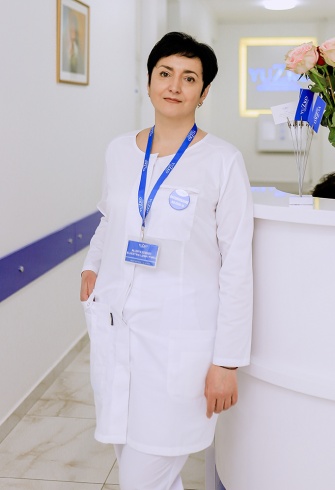ICSI (Intracytoplasmic Sperm Injection) - a technique of artificial insemination, in which one sperm is introduced into the egg by means of micromanipulators. This method of ART has revolutionized the treatment of male infertility and has enabled many couples not to use donor sperm.
The preparation and steps of the procedure are identical to the IVF, and the difference begins only in the embryological box.
The ICSI method includes the following steps:
- Enzymatic and mechanical purification of oocytes from cumulus cells (allows to assess the degree of maturity of eggs, since the procedure is performed only on mature cells)
- Choosing the best sperm (for such manipulation we use a sperm obtained from ejaculate, in the traditional way, and from aspirate, obtained surgically from the testicle or appendage), its immobilization (with the help of a glass needle, the sperm tail is fixed to the Petri dish floor)
- Fixation of an egg and introduction (injection) of sperm into its cytoplasm using micro-tools
- Cultivation, assessment of fertilization, and quality of embryo development and transfer, as in IVF
Indication:
- Significant decrease in spermogram index
- Absence or poor quality of fertilization in the IVF program
- Unsuccessful previous attempts at IVF
- Work with sperm obtained by puncture of the testicle or its appendage
The use of the ICSI procedure is sometimes unplanned. For example, a couple goes through preparatory stages of IVF, and on the day of follicle puncture, the result of a man's sperm is much worse than before. It is impossible to delay fertilization, so we have to choose between the ICSI procedure and the use of donor sperm.
Please contact:
Doctors, who take surgeries and can be addressed

Candidate of Medical Sciences, Associate Professor
more details
obstetrician-gynecologist
more details
obstetrician-gynecologist
more details
obstetrician-gynecologist
more details